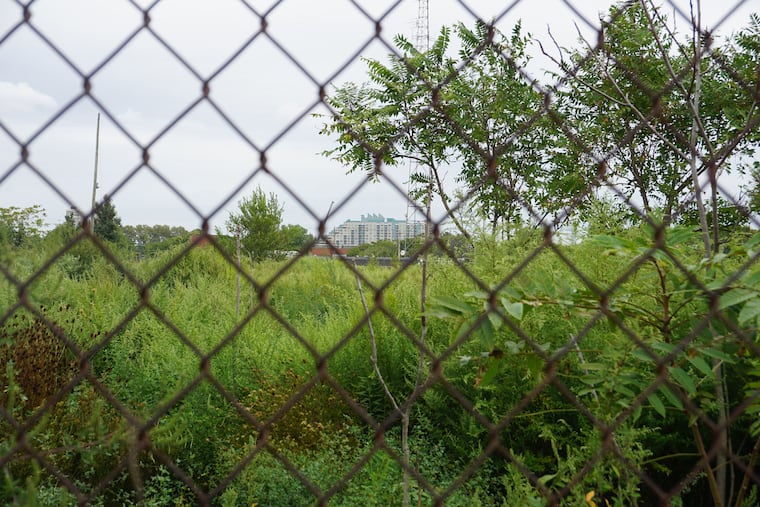Developer Bart Blatstein’s plan for Wawa gas station on Delaware River waterfront has been rejected
The decision could spell the end for Blatstein’s yearslong quest to put a Wawa on part of the land he bought between South Columbus Boulevard and the Delaware River after a previous owner failed to develop a Foxwoods casino at the site.

Philadelphia’s zoning board has rejected developer Bart Blatstein’s proposal for a Wawa gas station along South Philadelphia’s Delaware River waterfront, siding with opponents who argued that the project would set back efforts to make the area more inviting to residents and pedestrians.
The Zoning Board of Adjustment ruled against Blatstein’s plan for a large-sized Wawa convenience store with rows of gas pumps on the parcel he owns at Tasker Street and South Columbus Boulevard in the city’s Pennsport section, according to a Tuesday evening Twitter post by the government-affiliated Delaware River Waterfront Corp.
“This is a win for all who deserve safe pedestrian access,” the DRWC, which manages development along a large swath of central Philadelphia’s eastern waterfront, said in its tweet.
Blatstein did not immediately respond to a phone message seeking a reaction to the decision and whether he planned to seek an appeal.
The decision could spell the end for Blatstein’s yearslong quest to put a Wawa on part of the land he bought between Columbus Boulevard and the river, sprawling from Reed Street to Tasker Street, after a previous owner failed to develop a Foxwoods casino at the site.
When he first sought permits for the Wawa project on the southwest quadrant of that parcel in 2018, the plan was rejected by the Department of Licenses and Inspections because filling stations may not front on Columbus Boulevard under area land-use rules. Those rules emerged from the Master Plan for the Central Delaware, which was drawn up in the mid-2000s to encourage development that gives pedestrian access to the river.
Rather than appeal L&I’s decision at that time by asking the zoning board for a variance, Blatstein suspended his efforts the following spring.
Last year, though, L&I accepted a nearly identical plan after Blatstein had a street-facing strip of land declared a separate parcel so that the filling station faces the strip of land — legally speaking — and not the road itself.
Although a driveway across the buffer would let drivers get to the pumps directly from Columbus Boulevard, Blatstein was granted the variance that he sought.
Blatstein was, however, instructed that the pumps themselves would require a special exception, another type of permission granted by the Zoning Board of Adjustment with more lenient standards than a variance.
The zoning board convened a series of meetings last winter to hear arguments for and against granting the request for the special exception. A lawyer for the DRWC argued at those hearings that L&I had erred in the first place by granting the variance and asked for it be struck down.
When the zoning board began considering the proposal again at a recent hearing after a hiatus during the first months of the coronavirus pandemic, it ruled that the project should not have been granted a variance and that it did not qualify for a special exception, city spokesperson Paul Chrystie said.
Blatstein has the option of appealing the decision in Common Pleas Court.
“Gas stations are a prohibited use and [neighborhood groups] and the DRWC, along with my office, all opposed this project,” said Councilmember Mark Squilla, whose district includes the waterfront site.